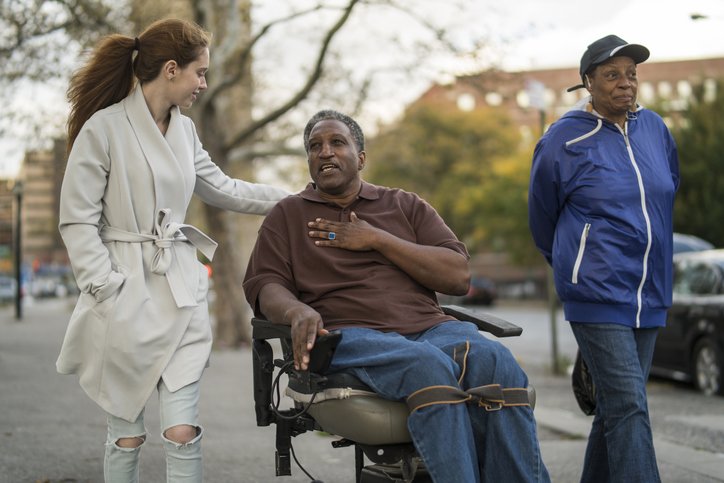How to Talk with Your Loved Ones about Their Final Wishes
The end of life can be a traumatic time filled with difficult decisions.
How does your loved one want to be cared for? What are their preferences for care if they become incapacitated? Where do they want to spend their final days? What arrangements do they prefer after they’ve passed on? These are tough questions to answer, made even more difficult in times of extreme stress and anxiety. But there are steps you can take to make end-of-life planning easier. It all begins with having that important conversation with your family members regarding their final wishes.

Starting the conversation about dying wishes and end of life care can be intimidating. Many people feel uncomfortable with the topic. Here are ten recommendations to help you feel more comfortable and make the conversation with your loved one a little easier.
- Practice having the conversation with a friend. Doing a trial run with someone you trust can help you get past the initial nervousness and apprehension.
- Choose an appropriate time to have the conversation. For some families, the holidays or other family get-togethers are ideal. Others might prefer a quieter, more private time to have the talk.
- Find a comfortable location. Where will your loved one feel most at ease? At the kitchen table? On a walk through the park? Over nice dinner at their favorite restaurant?
- Who should be there for this life conversation? An initial one-on-one conversation works for some, while including other family members or loved ones might be right for others. Ultimately, it’s important to include everyone who might be involved in caregiving. This can avoid conflicts and misunderstandings down the line.
- Write down the most important things you want to talk about. When it comes to end of life care, there’s a lot to discuss. Legal documents, hospice and palliative care, decisions about life support, funeral arrangements, preferences for burial or cremation—the list goes on and on. Some common questions you may want to ask your loved one about his or her end-of-life care wishes include:
-
If you were diagnosed with a life-limiting illness, what types of treatment would you prefer?
-
Have you named someone to make decisions on your behalf if you become unable to do so?
-
Do you have preferences for your final arrangements?
-
What can I do to best support you and your choices?
-
- This is the first of many conversations. Remind yourself that this is a constantly evolving discussion that will get easier as time goes on. You don’t have to accomplish everything in the first talk.
- Ask their permission. Asking permission to discuss this very personal topic assures your loved one that you will respect and honor his or her wishes.
- Be patient. End of life issues are difficult to discuss for many people. Some need more time than others to feel comfortable with the conversation, so be patient, not pushy.
- Be a good listener. Make a conscious effort to hear and understand what your loved one is saying. These moments, although difficult, are important and special to both of you.
Don’t judge your loved one’s wishes. It’s vital that they feel they can openly discuss their opinions. You and your loved one might not agree on everything but remember that the discussion is about their wishes, not yours.
The conversations you’ll have with your loved ones about their end-of-life wishes can be sensitive discussions but they will be well worth the effort. If you have additional questions about end of life conversations, final arrangements or preparations, please reach out to us anytime. Our compassionate funeral directors are always happy to assist you.
About Vaughn Greene Funeral Services: For more than 20 years, Vaughn Greene Funeral Services has been providing a ministry of care to Baltimore’s African American community. As a leading local, minority- and family-owned provider, we promise to provide our highest level of service and respect to families who entrust us to honor their loved one. For more information, please call us at 410.655.0015 or visit us online at https://vaughncgreene.com/.










Comments